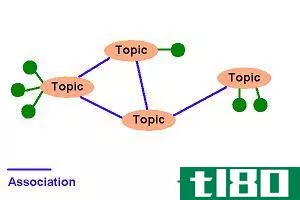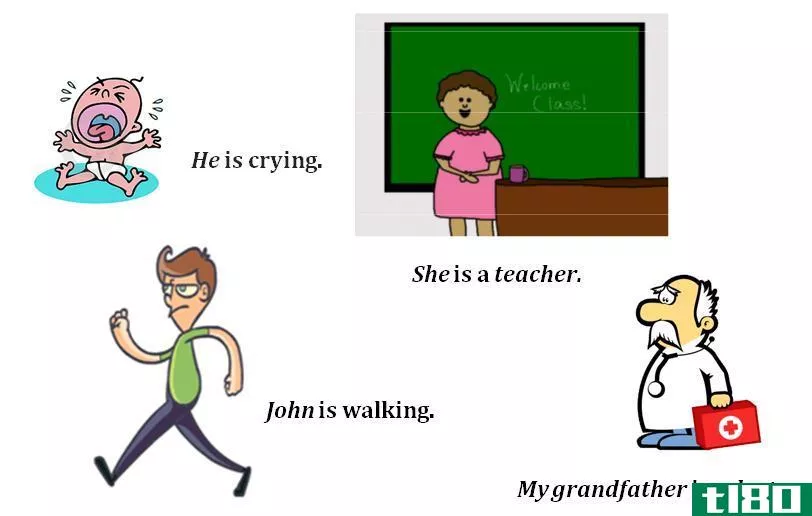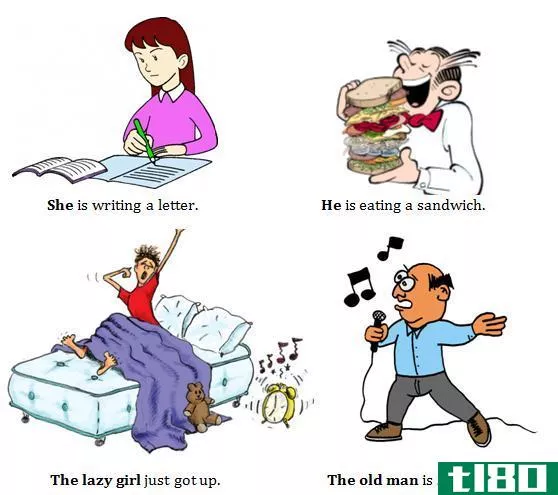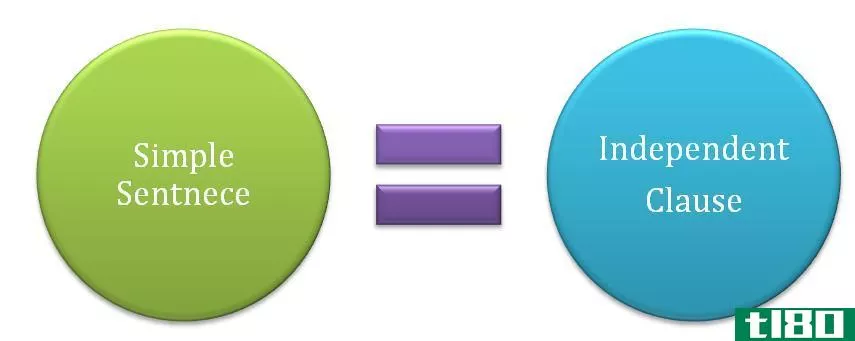如何在句子中找出主语(find the subject in a sentence)
句子必须包含主语和动词。动词代表存在的行为或状态,主语是执行该行为或状态的名词。要找到主语,首先找到动词,然后问自己动词后面跟的是“谁”或“什么”。
规则句结构
名词和代词充当主语。名词是人、地方、事物和概念,如house、Steve和anger。主观代词包括我、她、他、它、我们和他们。用动词找出主语。在句子中,“莎莉走回家”,“走”是动作。谁走回家的?答案是“莎莉”,这就是主题。同样的策略也适用于使用连接动词的句子,例如,“袜子是绿色的。”什么是绿色?答案是“Sock”,表示句子的主语。大多数句子都遵循主谓顺序,所以经常在动词之前寻找主语。
另类句子结构
命令,如“拿起铅笔”,将“你”理解为主题。其他句子可以倒装,意思是动词出现在主语之前。以“there”和“here”开头的句子通常遵循这种倒装结构。这里和那里都不是主题。例如,在句子“有三个学生”中,动词是“是”。当你寻找主语时,在你的问题中包括出现在这类句子中的“那里”或“这里”。问问自己,“有什么?”答案是“学生”,给你这个主题。其他常见的倒装结构包括问题,例如,“你准备好了吗?”谁准备好了?这里的主题是“你”
- 发表于 2021-11-23 13:09
- 阅读 ( 39 )
- 分类:文学
你可能感兴趣的文章
主题(subject)和话题(topic)的区别
...题”或“主题中选择的方面”。因此,可以说topic是单词subject的子集。这就是主语和话题这两个词的主要区别。本文讨论了主语和话题这两个词与其他用法的区别。 什么是主题(a subject)? subject这个词是一个名词,用在“niche”...
- 发布于 2020-10-09 04:52
- 阅读 ( 583 )
如何找出句子的主语(find the subject of a sentence)
“如何找到句子的主语”是一个非常有价值的问题,因为它有助于我们理解句子的结构和意义。想象一个句子,你找不到主语。没有主题,你只能看到一些动作。但是行动没有任何意义,除非有人或某事在做这些行动。...
- 发布于 2021-06-27 03:51
- 阅读 ( 787 )
主格的(nominative)和宾格的(accusative)的区别
... 安妮是一位老师。 Here, Anne is the accusative case as it is the subject of ‘is’, teacher is in the accusative case because it the subject complement, which renames or describes the subject. 什么是宾格的(accusative)? 宾格是指充当动词直接宾语或间接宾语或介词宾...
- 发布于 2021-06-27 05:32
- 阅读 ( 524 )
上升(rise)和提升(raise)的区别
... 水位在短短几个小时内急剧上升。 In all these examples, the subject moved themselves upwards, without the help of a physical, external force. raise–含义和用法 升高也意味着从较低的位置移动到较高的位置。但在这种情况下,这个意思更类似于提升,...
- 发布于 2021-06-27 10:13
- 阅读 ( 296 )
主题(subject)和对象(object)的区别
...接受者。这可以说是主客体的主要区别。 什么是主题(a subject)? 主语是句子中最重要的成分之一。句子的主语是指做动作或被描述的人或事。例如, 尼娜去上学了。 尼娜很漂亮。 在这两句话中,尼娜是主动词的主语。然而,...
- 发布于 2021-06-27 11:10
- 阅读 ( 844 )
简单的(simple)和复句(compound sentences)的区别
...=动词,父亲=介词宾语) She didn’t want to go to school. (She=subject, didn’t want= verb, to go to school= object of preposition) 什么是复句(a compound sentence)? 复句有两个或两个以上的独立分句。这些从句与并列连词结合使用(因为,而且,也不是...
- 发布于 2021-06-27 15:38
- 阅读 ( 1047 )
语法(grammar)和语法(syntax)的区别
...rlapping disciplines that deal with the c***truction of words, phrases and sentences in a language. Since both syntax and grammar deal with rules and structures of language, many people assume that grammar and syntax refer to the same concept. However, this assumption is not true; there is a marked ...
- 发布于 2021-06-28 01:01
- 阅读 ( 702 )
谁(who)和谁(whom)的区别
...我的相似(it can also be said that ‘who’ is used primarily as the subject in the sentence, whereas whom is used primarily as the subject. for example: who is going? whom is she going to meet? here in the first instance, who is doing the action, i.e. in this case going, whereas in the second i...
- 发布于 2021-07-12 20:15
- 阅读 ( 160 )
语法转换的定义和实例
...ce the effectiveness of the method of reducing utterances to certain basic sentence structures." –Kazimierz Polanski,“关于转换的一些评论”,《跨越历史和地理边界的语言学》,D.Kastovsky等人主编,Walter de Gruyter,1986年 "Some of [Noam] Chomsky's notation,...
- 发布于 2021-09-17 19:58
- 阅读 ( 214 )
从属从句:定义和例子
...an Watkins解释道: There can be levels of complexity within complex sentences. Within a dependent clause, for instance, there can be another dependent clause. For example, in the following sentence there is a main clause..., a dependent clause in an adverbial relationship with the main clause...
- 发布于 2021-09-20 15:16
- 阅读 ( 332 )















